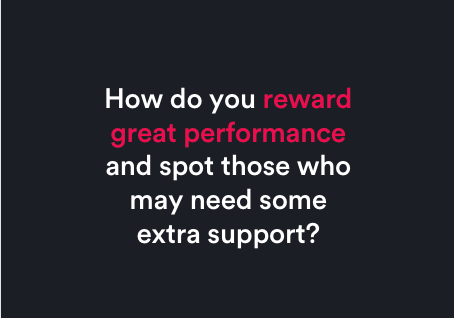👋 Team leads! 9 Project hacks from super-user Clara
Liz Pollock
30 May 2024
Clara runs the business development and property management departments of an award-winning real estate business in Ashgrove, a leafy Brisbane suburb known for its historic Queenslander homes and abundance of parks and young families.
Wearing many hats (as all property managers do!), she oversees a growing team of property managers and in the past few years on Ailo has truly become a Projects super-user.
So, we sat down with Clara to hear how she uses Projects to manage and motivate high-performing teams.

1. Start your day in Chat, then head over to My Actions
The first thing we do in the morning is check all of our chats before heading into our My Actions to see what needs to be done for the day and work through their actions. This could be a follow-up call, an inspection, sending a work order, etc. It’s essentially like a checklist for everything you're doing in your day for that one task. And, Chat links in with your Projects, so you'll have new projects from your chats in the morning, too.
It’s a really big transition from using emails and your calendar to run your entire life as a property manager to now, where you can manage your entire day in one place. When you first get onboard Ailo, you have to remind the team to stop relying on using emails for reminders and living by their calendar anymore! You just go into Ailo and everything is in the one spot, and you can see what everyone else is doing as well.
2. Use the unique KPIs in Projects to incentivise and support your team

Within our business, we have quarterly planning days where the entire team gets together and reviews our goals for the next three months. Each team member will self-set what their learning goal and workload goal is – and the work goals are all linked back to KPIs from their Projects and actions in Ailo.
For example, we manage a lot of properties that are over 100 years old; they're all Queenslanders that come with a lot of maintenance.
One of our property managers last quarter recognised that the most stressful part of her day was maintenance, and coming in and seeing how many open Projects she had for maintenance.
Her goal for the next quarter was to bring down her open maintenance Projects by the end of the quarter. And she put in place a goal to have a certain number of actions completed every day in order to achieve her goal. So she was tracking it every day, saying, “I've only got to close this! I've only got to do this much, and then I'm done!”
And, she did it! She actually hit it early, too.
3. Keep an eye on Chat response rates, a leading indicator of burnout
With Projects, you can really easily see when someone is not doing the work. Their actions list will start to build up and their unread chats will go up and response rates will go down. In most cases, it's not due to a lack of work ethic on the staff member. It's just, property management sometimes does get a little bit overwhelming.
Sometimes you have more reserved team members who aren’t as outward about saying, “Hey, I don't have time for that this week. Can we push this to next week? Or, I need some help.”
“You can see when someone is struggling within their Project actions, and you'll definitely see it in their Chats. So if that starts building up, you know pretty soon they'll start coming into work stressed.”
— Clara Hipkiss, Head of Investor Services
In this case, I make sure I address it in my weekly one-on-one with that team member to dig into what’s stressing them out and help them come up with a game plan. Typically, we just need to assign a couple of tasks and split some work up between the teams so that everyone's smooth sailing.
4. Don’t let the sun set on un-responded Chats
The worst part of the job – and what makes the job stressful – is if people are following you up. So if you have chats that are unattended at the end of the day, you can pretty much guarantee you'll come in the morning and you'll have a follow up.
So, we have a blanket rule: At the end of the day, zero chats, zero emails, zero non-returned calls.
I'm really big on coming into work in the morning, and it being a fresh day for you without something from yesterday lingering over in your brain.
If you don’t have the answer, that’s okay. Just acknowledge that you've received their correspondence and let them know that it's going to take you 24 hours to come back to them because you need to find out more information or you need to work with the team on something.
5. Link all your Chats to Projects
More often than not, your chats will automatically link back to open Projects, like your new leases or maintenance requests. But if not, link them yourself!
People aren't chatting to you just to see how your day is; if people are reaching out to you on property management, they want something from you! So reply and let them know you’re on it, and then close it off – because it's not going to be lost and you're not going to forget about it, because you have a Project and reminders tied to your actions.
6. Customise every Project and Message Template you have!
The default Ailo Projects provide a solid foundation for any property manager to go in and do their daily work. But every business is unique and you have different processes. So it's worthwhile just going through and making sure all your projects and message templates suit your business.
For example, there were certain things that we thought could be done as an additional step to improve the customer experience. So, we added extra actions like follow-up calls and customer message templates.
“For a long time, we didn't bother to do it but we've now taken the time to create our own custom templates; it just makes everything really seamless. ”
— Clara Hipkiss, Head of Investor Services
And you know that every staff member is doing the same quality of work, because it's all laid out for them.
7. Take advantage of descriptions in Project actions
As a team lead, use the description field to add your expectations on every step of each Project. Then, no matter who is doing a project when everyone can see your expectations.
For example, we have a customised message that goes out to the investor to request any additional documents, which is particularly useful when we’ve done a handover from a previous agency. We might be missing a water compliance certificate or rates. Then we have an action to let our principal know about the new client, so they can make a welcome call. In the description, we’ve literally written ‘Get up from your desk, and look for the principal to make sure he sees your email!’
The description is for all those intricate things that the team needs to know, especially if they’re new and don't know the ins and outs of the business.
8. If a team member is sick, don’t stress. Toggle your My Actions view to their profile to reassign actions and adjust due dates

My Actions provides full transparency over what everyone's doing and what stage of the project and the task that they're doing is at. It makes it really easy if someone is unwell or someone's on annual leave.
Just change your My Actions tab to be that staff member, and see what they had on their to-do list that day. Last week I had a team member sick, so I jumped into her actions and changed the due date of ones that I knew could wait until the next week. And for the urgent or important actions, I reassigned them to other team members and those actions just popped-up in the new owners’ screen. So, it's just easy.
This level of control facilitates depth in the business, which wasn't a thing in property management until Ailo. Before, when you had staff unwell and not come to work, or if you had a high turnover business where you lose information once someone leaves – it was a real risk. This doesn't happen anymore.
“You can have a bum on a seat that walks out the door one day or maybe they’re just unwell, but with Projects someone else can just sit in that seat and know exactly what needs to be done that day. ”
— Clara Hipkiss, Head of Investor Services
There's no loss of information, because it’s not only retained in property managers’ brains.
This level of transparency gives us the capacity to support each other. Which means our clients are happy, because stuff is not getting missed.
But the real benefit of it is you don't have a staff member at home that's unwell on their emails and on their phone, which is such a major issue with property management. We’re all control freaks! Property managers don't want to let go.
So, it just provides reassurance also for that team member that everything they needed to do, someone's going to see it. It's not going to be forgotten. They're not going to let their clients down. They're not going to upset anyone by missing something. And they can focus on getting better.
9. Give prospective clients a peak behind the curtain at Projects

I like to get the app up and show them what we work with! I'll start messaging the team and the chat, and hopefully within seconds someone replies (and usually they do!). So we look pretty onto it when they reply straight away. It just gives them a direct insight into what their experience will be.
You're not going to be calling a receptionist who's going to put you on hold for five minutes while they chase down a property manager only to be put through to a voicemail. You can just flick us a message on your phone.
In our area, we have a lot of investors who have moved overseas for a period of time and lease out their family homes. They have a really personal connection to the home, so being able to access almost everything they need 24/7 provides them a lot of comfort.
They can see the rent has been paid. They can see that maintenance projects have been done, because they can see the bills have been paid. They know how much money is sitting in their digital wallet, and they can have that whenever they want it. They love it.
They say, “You do everything and you'll send me something at the end of the year, which gives me all of my expenses and my income and I don't have to do a thing? Perfect.”


